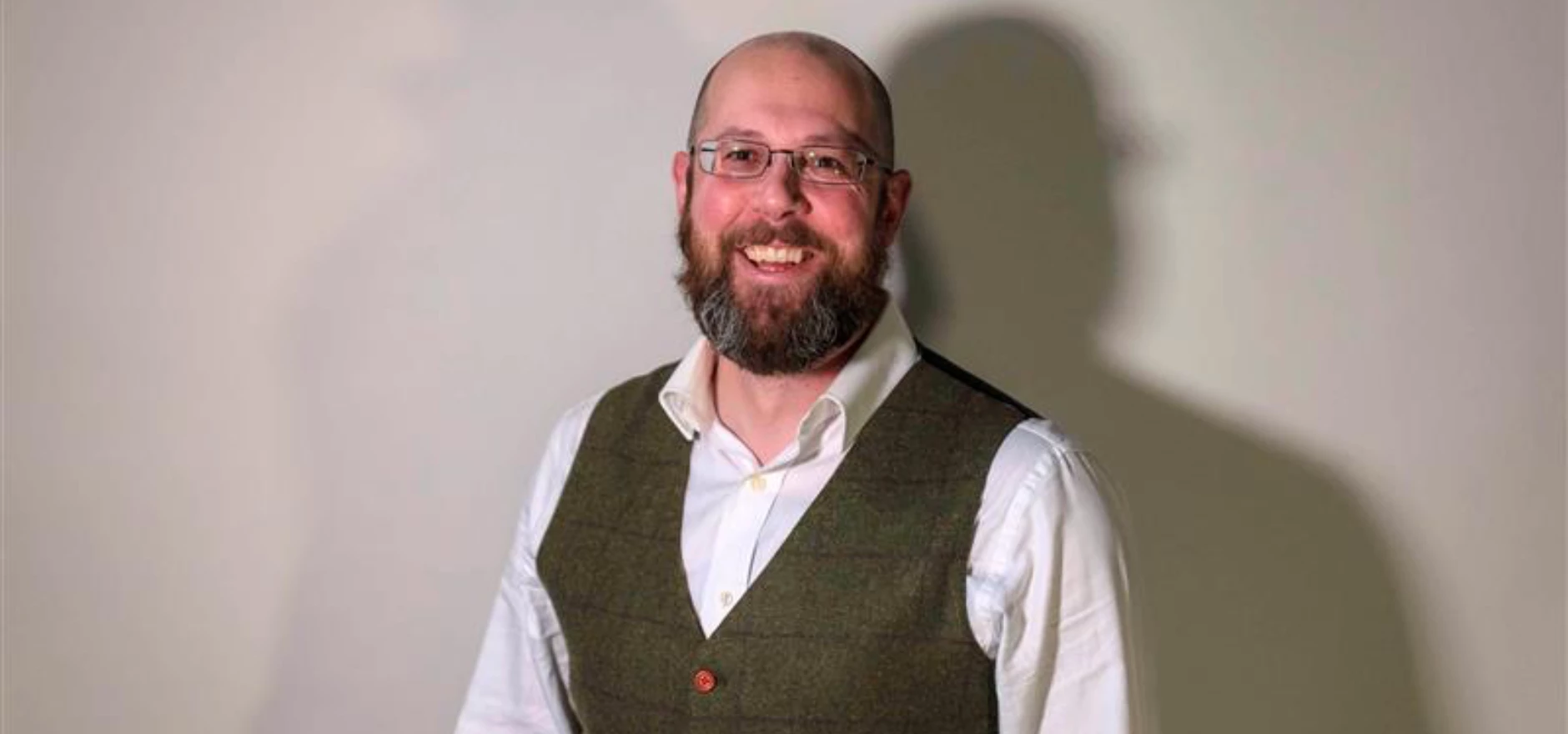
Then and now... Matt Buckle
In the latest instalment of Bdaily's Then and now series, Matt Buckle, managing director at London-based TV, film and audio campaign maker Transmission, reflects on his career, from his first role to the present day, highlighting the lessons he has learned from his personal and professional evolution.
You’re partner and managing director at Transmission. What does your role entail?
I aim to keep the ship steady, making sure everyone’s got what they need to be creative, do great work and not worry about the stuff that shouldn't be on their plate.
I’m the one watching the cashflow, sorting the logistics and handling the ‘boring’ bits.
Ultimately, my job is to make sure ideas don’t get stuck behind a spreadsheet.
Did you always want to work in advertising? Or did you have other ambitions when you were growing up?
I was an advert nerd from the get-go.
Creature Comforts and those mad Peperami adverts – I loved them.
I was always scribbling stories and drawing daft pictures.
I didn’t have the attention span for a novel, but I could nail a punchy headline.
There’s something about the structure of advertising – it’s creative, but with a deadline.
What was your first job – and did you enjoy it?
Technically, my first job was behind the tills at a garden centre, aged 12, working with my dad.
I genuinely liked it, there was something satisfying about getting your hands dirty, and I’d always enjoyed gardening.
But my first job in the industry was writing radio adverts.
It was great fun, with loads of freedom and real ownership.
I was 20, just out of university, and by week three I was working on live clients.
I heard my first advert on air after four weeks.
After six months, there was a whole advert break of just my creations!
Were there any mentors or individuals that helped shape your career? And are you still applying lessons you learned then to your workforce of today?
Absolutely. Matt Ellis was my first boss – a smart bloke and someone I really respected.
Then there was Simon Whitworth, in London. One of the sharpest writers I’ve met. He took me under his wing and helped me understand the craft, not just the clever lines.
Radio is a good place for mentorship – it’s intimate and collaborative.
Later on, Tim Cowland helped me wrap my head around leading people and running a business.
I still draw on those lessons daily.
What attracted you to the advertising sector?
The balance.
You’re telling a story, but it’s within a frame.
There’s a problem to solve, a brief to hit and a timeline to respect.
I always loved that mix of creativity and purpose.
It’s not indulgent; you’re making something that needs to land, connect and work.
That structure gives the chaos a bit of focus.
How do you feel you’ve changed as a person over the years? Have career roles brought new dimensions to your personality?
I’ve learned to dial bits of myself up or down, depending on what the job needs.
I started as a writer, so the instinct was always creative.
But now, leading a team of 30-odd people, it’s more about the bigger picture, so strategy, operations and supporting the team.
Working alongside partner and creative director Adam, and partner and production director Lee, has broadened my view.
I’ve grown into enjoying the business side.
I still love the creative spark, but I don’t need to be the one holding the pen anymore.
Furthermore, when you’re running a business and people are relying on you, a bit more of the paternal side comes out – whether you mean it to or not.
I’ve had to become more structured and more serious at times, which wasn’t always my natural state.
But it’s part of the deal.
You’ve got to be the one keeping things steady when they wobble.
You’ve seen many changes to the employment world across your career – how do you see the workplace evolving in years to come?
It has changed massively.
When I started, there were more entry-level doors open – you could get a break without needing five years’ experience or having to work for free.
That seems harder now, and I don’t love that.
I knew someone who did unpaid work for two years. Madness.
But on the flip side, there are new roles now, from AI specialists to SEO experts, which barely existed when I started.
There’s flexibility too. Remote work means younger people can try things out more easily.
Today, it feels like you’ve got to make your own break.
Before, you waited for the agency to open the door.
Now, you build one yourself.
Looking to promote your product/service to SME businesses in your region? Find out how Bdaily can help →
Enjoy the read? Get Bdaily delivered.
Sign up to receive our popular morning London email for free.








 Raising the bar to boost North East growth
Raising the bar to boost North East growth
 Navigating the messy middle of business growth
Navigating the messy middle of business growth
 We must make it easier to hire young people
We must make it easier to hire young people
 Why community-based care is key to NHS' future
Why community-based care is key to NHS' future
 Culture, confidence and creativity in the North East
Culture, confidence and creativity in the North East
 Putting in the groundwork to boost skills
Putting in the groundwork to boost skills
 £100,000 milestone drives forward STEM work
£100,000 milestone drives forward STEM work
 Restoring confidence for the economic road ahead
Restoring confidence for the economic road ahead
 Ready to scale? Buy-and-build offers opportunity
Ready to scale? Buy-and-build offers opportunity
 When will our regional economy grow?
When will our regional economy grow?
 Creating a thriving North East construction sector
Creating a thriving North East construction sector
 Why investors are still backing the North East
Why investors are still backing the North East